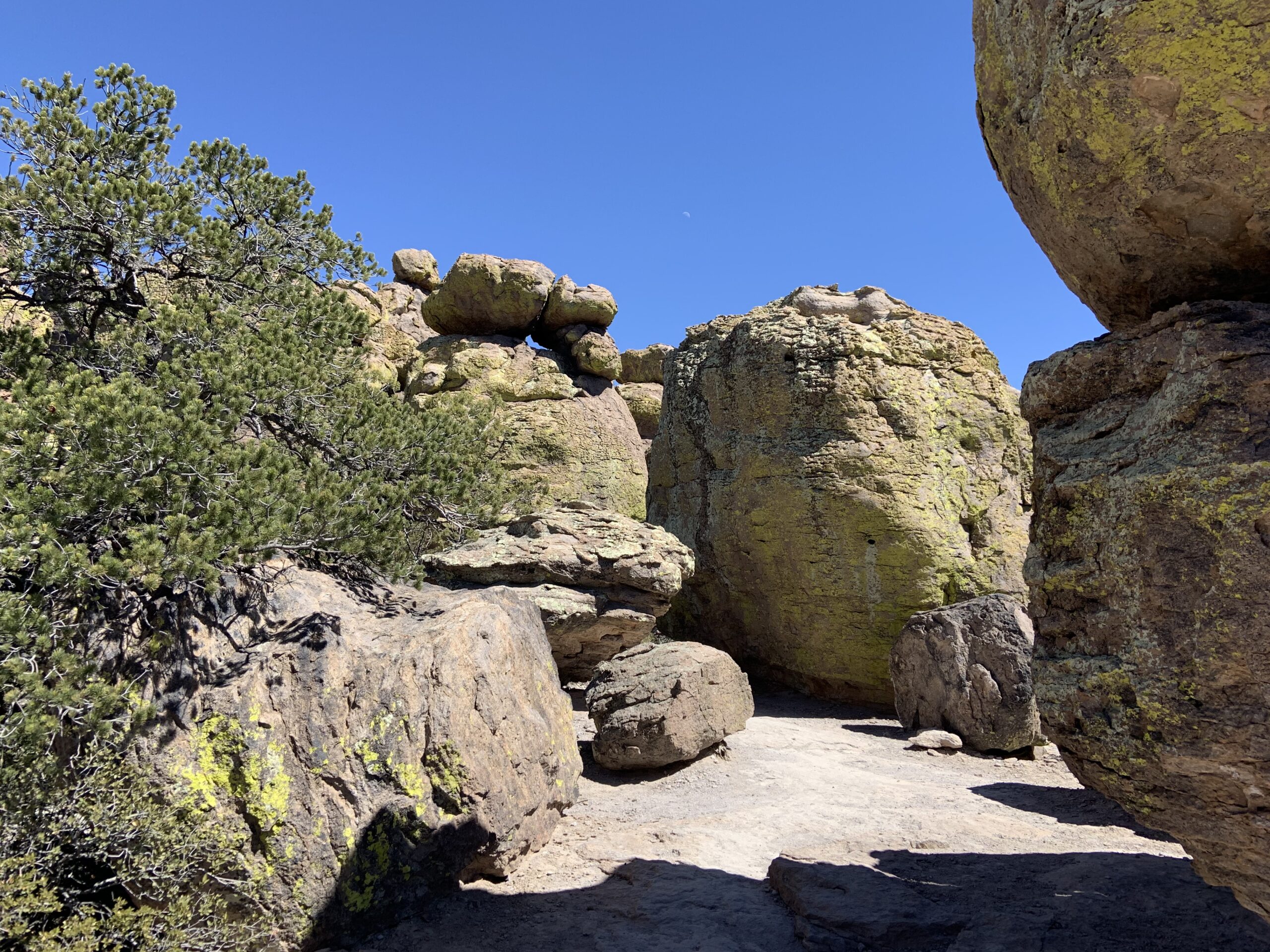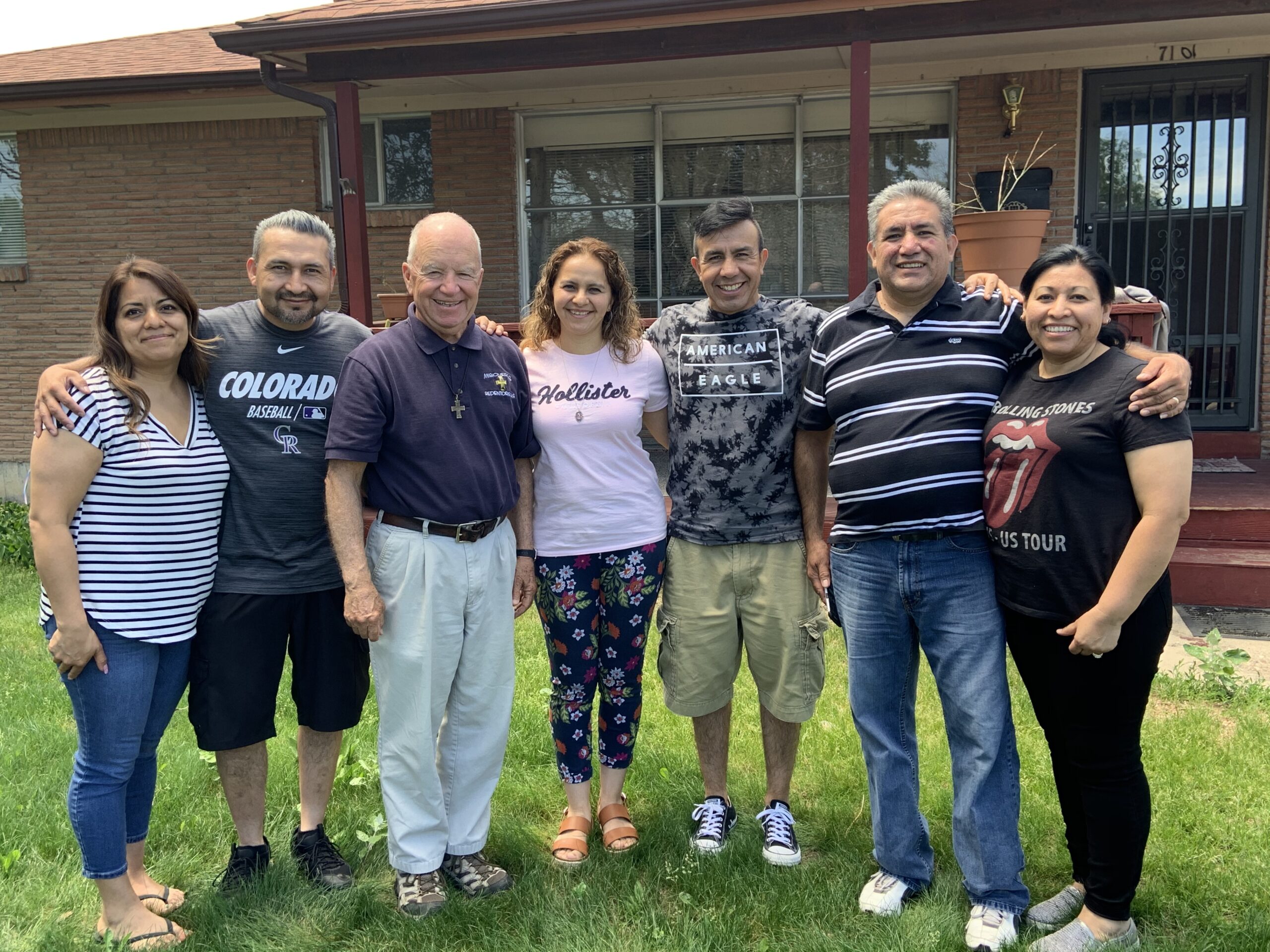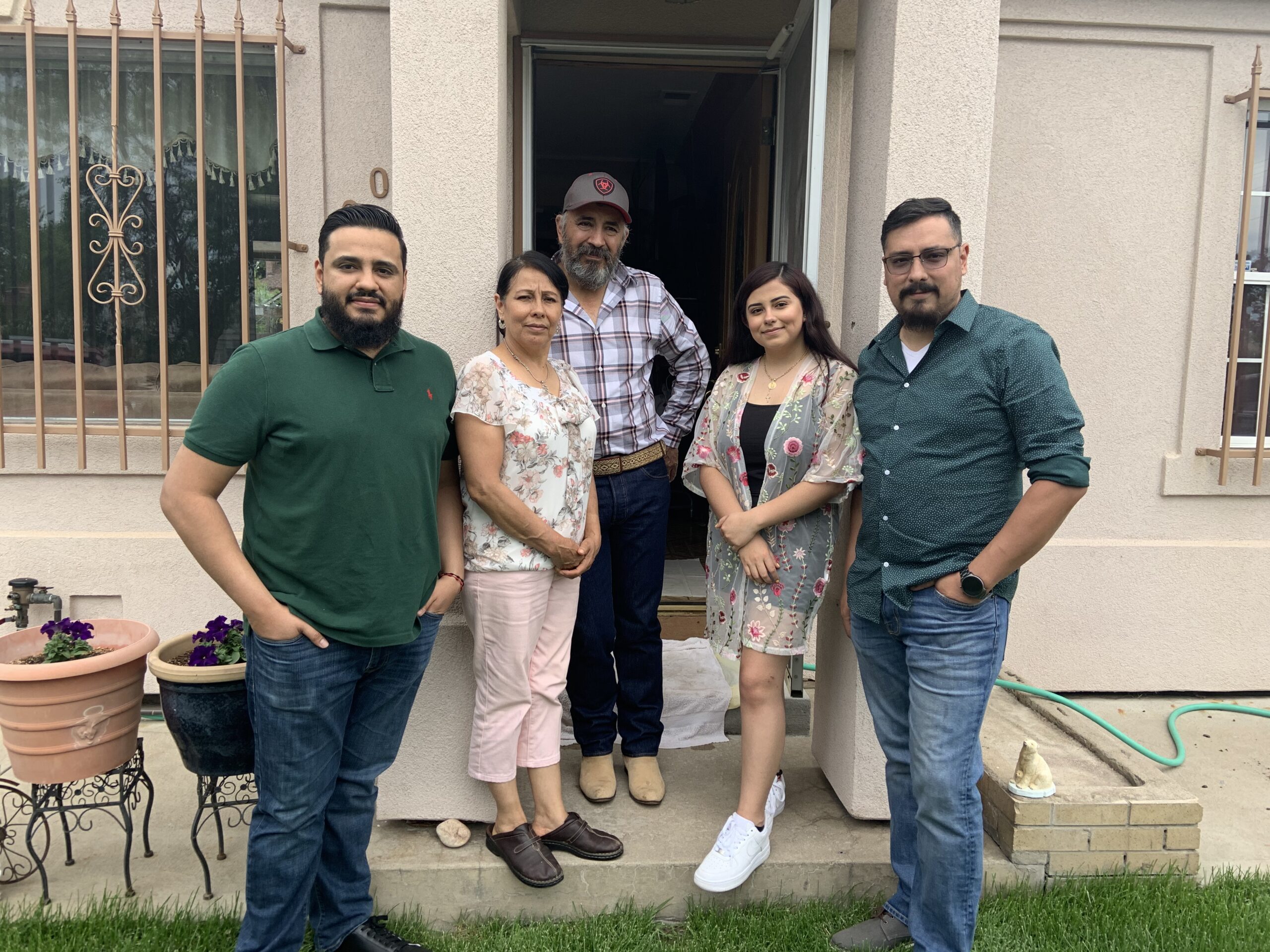2. Ascensión a Pentecostés: Celebración y continuación – Celebration and Continuation
Celebración y continuación
Esta semana, muchos jóvenes están celebrando la graduación de escuelas secundarias, universidades y programas de formación profesional. Es una gran ocasión para una fiesta. Los católicos siempre estamos listos para una fiesta. Incluso si no hay motivo para una fiesta, inventaremos un motivo. En este tiempo del año, tenemos muchos motivos para celebrar. Como parte de nuestra celebración de la Pascua, la Resurrección de Jesús, llegamos a la celebración de la ASCENSIÓN. Los discípulos de Jesús tenían muchas emociones cuando Jesús les dijo: “Vayan por todo el mundo y prediquen el Evangelio a toda creatura.” Luego ascendió fuera de su vista. ¿Qué harían ahora? Jesús ya no estaba con ellos. Él dijo que enviaría el Espíritu para guiarlos, pero ellos se pensaron qué significaba eso. Miraron al cielo y finalmente dos hombres vestidos de blanco preguntaron: “¿Por qué miran hacia arriba?” El misterio era, ¿cómo continuar el ministerio de Jesús?
En las ceremonias de graduación, elogiamos a los graduados por sus logros en la escuela, pero los oradores en las ceremonias de graduación llaman la atención sobre la continuación de estudios o carreras. Para los discípulos, la continuación comenzó en Pentecostés. Después de que 3000 creyeron en Pentecostés, partieron el pan con los discípulos. La continuación estuvo marcada por la celebración de la Eucaristía. Durante el año pasado, nuestra Eucaristía se redujo enormemente. Incluso nos dispensaron de la “obligación” de la misa dominical durante la pandemia.
Esta semana, tuvimos una señal de que podríamos estar yendo más allá de COVID. Hay nuevos protocolos para protegernos a nosotros mismos y a los demás de COVID, y nos celebramos por tener menos restricciones. Algunas diócesis ya han comenzado a abogar por un regreso a un entendimiento previo de la obligación dominical. Espero que la gente modere su comprensión de la importancia del culto dominical. Si bien la Iglesia siempre ha reconocido excepciones a la obligación dominical para aquellos que no pueden asistir a la misa, la interpretación rígida de la obligación llevó a muchos católicos a considerar solo excepciones extremas y la falta de misa se consideró entre los pecados más graves.
Tengo un deseo que muchos pueden malinterpretar. Espero no volvemos a oír la confesión: “Me perdí la misa el domingo”. Tómese un momento para considerar nuestra necesidad espiritual de hacer espacio para Dios en nuestras vidas. Espero que todas las personas, en medio del año pasado de sufrimiento, reconozcan la misericordia y el amor de Dios. Que la obligación del domingo se cambia en como animar la santificación del Día del Señor como un valor que simplemente no queremos faltar.
Un sacerdote anciano contó la historia de su padre enseñándole a él y a sus hermanos la razón de ir a la misa dominical. Vivían en un rancho en las afueras de Death Valley, California. Era 1910. Un domingo, el sacerdote dijo que los que viven a más de una hora de la Iglesia no cometen pecado mortal por faltar a la misa del domingo. El domingo siguiente, los tres niños mientras preparaban sus caballos para ir a misa le dijeron a su papá que el padre les había dicho que no tenían que ir a misa el domingo. El papá dijo: “Esta familia no va a la iglesia por obligación. Vamos a la iglesia porque somos católicos. Monten, muchachos”.
La lección aprendida por los tres hermanos inspiró a dos de ellos a convertirse en sacerdotes. No iban a la iglesia por obligación. Al salir de la oscuridad de COVID, me incomoda hablar de la obligación de asistir a misa, pero me siento muy cómodo diciéndole a la gente que “santifiquen el día del Señor”. Nuestra forma normal de hacerlo es asistiendo a Misa, pero mi vida como misionero me ha llevado a servir a muchas personas que no pueden asistir regularmente a la Misa dominical.
Otro sacerdote era el mayor de varios hijos. Cuando era un niño, crecía en una lechería, De vez en cuando, había una vaca dando a luz mientras la familia se preparaba para ir a misa. En tales ocasiones, él iba al establo para ayudar a su padre a cuidar de la vaca y el ternero. Si los quehaceres eran demasiado largos y se perdían la misa, después del nacimiento del becerro, su padre decía: “Hijo. Rezamos el rosario”. Reflexionando sobre su infancia, dijo: “Nunca dejamos de santificar el Día del Señor”.
Algunos obispos aclararon el significado de dispensar de la obligación dominical mejor que otros. Que nuestras parroquias no solo recuperen la participación de los católicos en la Eucaristía dominical, sino que lleguemos a comprender que nuestra celebración comunitaria semanal de la resurrección de Jesús lleva a cabo el llamado de los discípulos a “Vayan por todo el mundo y prediquen el Evangelio a toda creatura”.
Sigo buscando ayuda
Ayúdame a preparar un programa sacramental para niños con necesidades especiales y tiempo limitado de preparación.
Por favor comparte conmigo tus recuerdos. Escribir a: [email protected]
Celebration and Continuation
This week, many young people are celebrating graduations from high schools, colleges and career training programs. It is a great occasion for a party. We Catholics are always ready for a party. Even if there is no reason for a party, we will make up a reason. At this time of year, we have many reasons to celebrate. As part of our celebration of Easter, the Resurrection of Jesus, we come today’s feast, the ASCENSION. The disciples of Jesus had many different emotions as Jesus told them, “Go into the whole world and proclaim the gospel to every creature.” Then he ascended out of their view. What would they do now? Jesus was no longer with them. He said that he would send the Spirit to guide them, but they wondered what that meant. They looked into the sky, and finally two men dressed in white asked, “Why are you looking up?” The mystery was how to continue Jesus’ ministry.
At graduation ceremonies, we praise the graduates for their accomplishments in school, but the speakers at graduation ceremonies call their attention to continuation of studies or careers. For the disciples, the continuation began at Pentecost. After 3000 believed on Pentecost, they broke bread with the disciples. The continuation was marked by the celebration of Eucharist. For the past year, our Eucharist was curtailed greatly. We were even given dispensation from the “obligation” of Sunday Mass during the pandemic.
This week, we had a sign that we may be moving beyond COVID. There are new protocols for protecting ourselves and others from COVID, and we rejoice at less restrictions. Some dioceses have already begun to advocate a return to a pre-pandemic understanding of Sunday Obligation. I hope that people moderate their understanding of the importance of Sunday worship. While the Church has always recognized exceptions to the Sunday obligation for those unable to attend Mass, rigid interpretation of the obligation prompted many Catholics to only consider extreme exceptions and missing Mass was considered among the gravest of sins.
I have a wish, that may be misunderstood by many. I hope that I never again hear someone confess, “I missed Mass on Sunday.” Please take a moment to consider our spiritual need to make room for God in our lives. I hope that all people, in the midst of the past year of suffering recognize God’s mercy and love. May Sunday obligation give way to making holy the Lord’s Day as a value that we simply do not want to miss.
An old priest told a story of his father teaching him and his brothers about going to Sunday Mass. They lived on a ranch outside of Death Valley, California. It was 1910. On a Sunday, the priest said that those who live over one hour from the Church do not commit mortal sin by missing Mass on Sunday. The following Sunday, the three boys while get their horses ready to ride to Mass told their Dad that Father said that they did not have to go to Mass on Sunday. The Dad said, “This family does not go to church because of obligation. We go to church because we are Catholic. Mount up, boys.”
The lesson learned by the three brothers inspired two of them to become priests. They did not go to church because of obligation. As we come out from the darkness of COVID, I am uncomfortable with speaking of the obligation to attend Mass, but very comfortable with telling people to “make holy the Lord’s Day.” Our normal way to do that is by attending Mass, but my life as a missionary has taken me to serve many people who are unable to regularly attend Sunday Mass.
Another priest was the oldest of several children. Occasionally, as a boy growing up on a dairy there would be a cow giving birth as the family prepared to go to Mass. On such occasions, he went to the barn to help his father tend to the cow and calf. If the chores went too long and they missed Mass, after the birth took place, his father would say, “Son, get your beads. We will pray the rosary.” Reflecting on his childhood, he said, “We never failed to make holy the Lord’s Day.”
Some bishops clarified the meaning of dispensing from Sunday obligation better than others. May our parishes not only recover active participation of Catholics at Sunday Eucharist, but may we come to understand that our weekly community celebration of the resurrection of Jesus carries on the call of the disciples to “Go into the whole worldand proclaim the gospel to every creature.”
I am still looking for your ideas
Help me prepare a sacramental program for children with special needs and limited time for preparation.
Please share with me your memories. Write to: [email protected]
Oh Jesús, tú nos llamas: “Síganme”. Bendice, Señor, a todos los que acogen tu llamado. Puede que el camino no sea fácil, pero tenemos la confianza de que todo es posible si caminamos contigo. Que este viaje nos abra los ojos a las maravillas de tu amor por nosotros. Oramos por toda tu gente, por todos los creyentes e incrédulos, por los líderes y seguidores. Oramos por la sanación, el perdón, la compasión, la justicia y la paz. Oramos para que, al seguirte, nosotros también podamos ser pescadores de hombres. Bendícenos en nuestro viaje.
O Jesus, you call us, “Come after me.” Bless, O Lord, all who welcome your call. The path may not be easy, but we have confidence that all things are possible if we walk with you. May this journey, open our eyes to the wonders of your love for us. We pray for all your people, for all believers and unbelievers, for leaders and followers. We pray for healing, for forgiveness, for compassion, for justice, for peace. We pray that as we follow you, we too can be fishers of men. Bless us on our journey.





